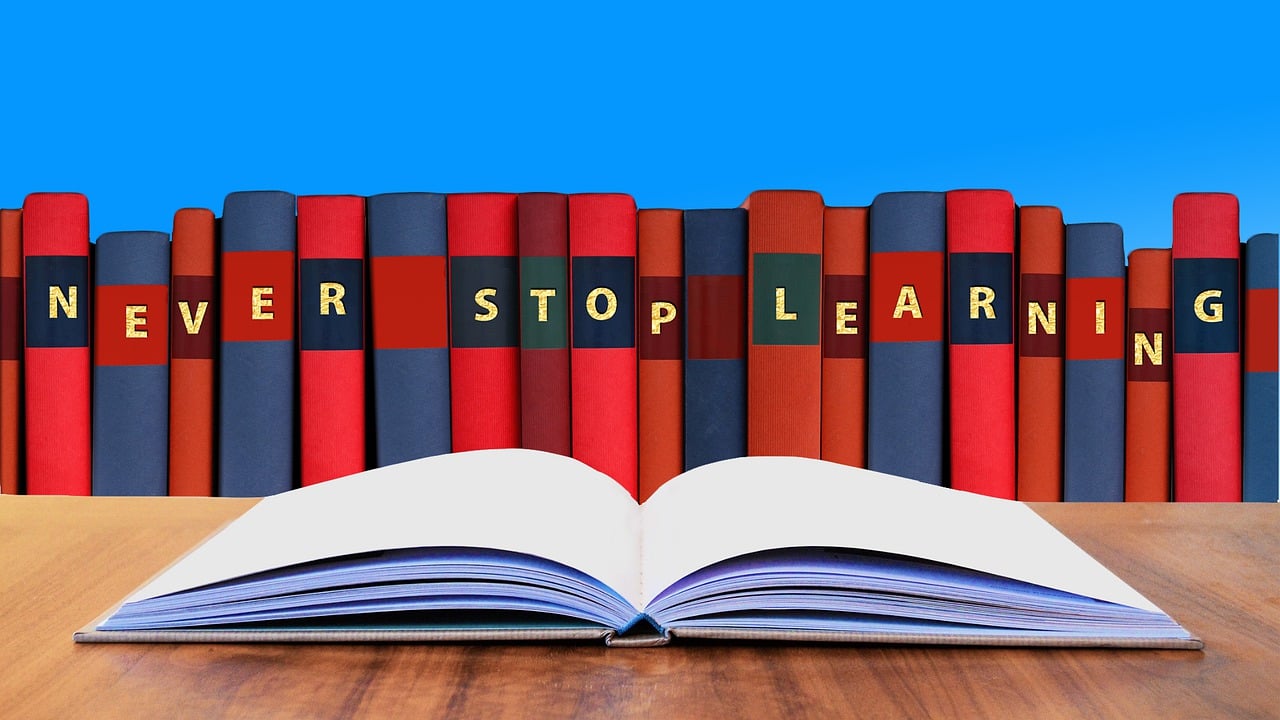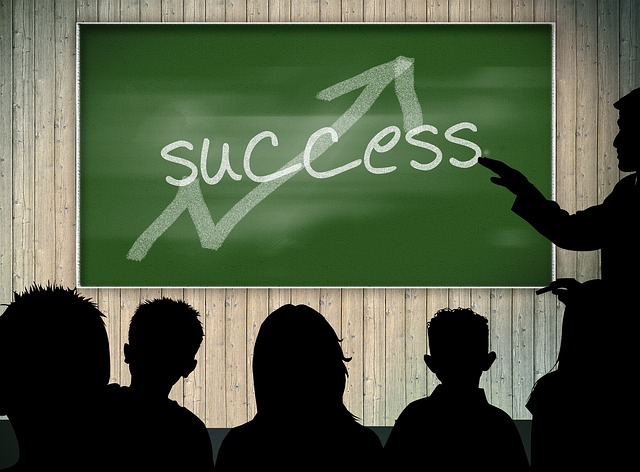Introduction
Education is important for every individual because it helps them to develop their skills, knowledge, and talents. It also enables them to get a job that they are passionate about. Education not only gives you the skills to get a good job but it also broadens your horizon and makes you more conscious about what you’re doing.
So many people these days do not have a high quality education. They end up getting jobs that are not of great value or they simply can’t find a good job because their education doesn’t give them great skills. Education is essential so that one can work towards his or her own goals and achieve self-fulfillment.
Why education is important
Education is an important component of everyone’s life, and it plays a critical role in the growth of both the individual and society as a whole. Education enables us to acquire knowledge and abilities, assists in the development of our personalities, and helps us get ready for the future. Additionally, it permits us to comprehend the environment that surrounds us and to make choices based on that comprehension.
There are many reasons why education is extremely vital, including the following:
Education enables people to realize their full potential and mature into well-rounded persons, both of which contribute to personal growth. It is beneficial to increase abilities in communication and critical thinking, both of which are vital for personal and professional development. Education also plays a role in the development of self-assurance, self-esteem, and a sense of self-worth.
Education is frequently viewed as a critical aspect in professional advancement in today’s highly competitive work market. This is particularly true of graduate degrees. Employers frequently search for potential workers who possess the knowledge and abilities necessary to properly perform their job responsibilities. A solid education can make it possible to enter more competitive job markets and earn greater earnings.
Individuals can become responsible and engaged members of society with the support of education, which contributes to social progress. It teaches us to accept diversity and to comprehend the viewpoints and cultures of others from a variety of backgrounds. The act of encouraging people to work together toward similar goals is another way that education contributes to the promotion of social cohesion and understanding.
Education is absolutely necessary for the progress of a nation’s economy, which is why it should be a priority. It contributes to increased productivity as well as innovation, both of which are necessary for economic expansion. People who have completed their education are more likely to make a positive contribution to the economy since they possess the abilities and information necessary to launch their own companies or find work in a variety of industries.
Learning is something we should do throughout our entire lives; it does not stop when we leave school or university. It is an ongoing process that assists us in adjusting to new circumstances and overcoming obstacles during the course of our lives. Continuous education allows us to maintain a competitive edge in the labor market by keeping us abreast of the most recent advancements in our industry.
To summarize, receiving an education is necessary for one’s own personal development as well as for societal and economic advancement. It enables people to realize their full potential, make progress in their jobs, and contribute to the growth of society. Education is an ongoing process that equips us to respond effectively to shifts in circumstance and difficulties throughout our lives.
How to find the right education for your goals
Everyone has different goals and needs when it comes to their education. There is no one-fits-all solution when it comes to finding the right education for your child. It is important to find the right education for your child because the right education will help your child develop the skills that they will need in their lifetime.
There are many different types of education: traditional, online, hybrid, correspondence, and more. Each of these different types of education has its own benefits and disadvantages.
Finding the appropriate educational path might be a difficult endeavor, but it is absolutely necessary in order to accomplish your objectives and realize your full potential. The following are some pointers that can assist you in locating the appropriate educational path for your objectives:
Determine your objectives: The first thing you need to do in order to find the appropriate school for you is to determine your goals. What do you hope to accomplish in your professional life as well as in your personal life? Do you want to increase your knowledge and expertise in a certain subject, or do you want to learn new things that can assist you in moving forward in your career? Having well-defined objectives will make it easier for you to whittle down your choices and select the appropriate educational path for you.
Do some research on the following: Traditional learning in a classroom setting, learning on the internet, and training for specific jobs are some of the various forms of education that can be pursued today. Do some research on the various educational paths available to you to determine which one will serve your requirements and objectives most effectively. When deciding between various possibilities, it is important to take into account aspects such as cost, location, and flexibility.
Consult with knowledgeable individuals: Talk to teachers, professionals, and people who have been successful in your industry to find out what they think the most beneficial educational path is for you given your objectives. They may be able to offer insights and suggestions based on their own experiences, which they can share with you.
Think about the way you learn best: there are many various types of schooling, each of which caters to a distinct learning style. Think about if you would rather learn something in-person, through online means, or through a combination of the two. You shouldn’t forget to think about the kinds of assistance and tools that are at your disposal in order to achieve success.
Do not be scared to take chances: education is an investment in oneself, and it is OK to take chances in order to discover the appropriate education for one’s goals. Do not be afraid to take chances. If you want to be successful in achieving your goals, you shouldn’t be scared to try new things or to step outside of your comfort zone.
You may locate the appropriate education that will assist you in achieving your goals and realizing your full potential if you follow these guidelines and put them into practice.
How to establish a career plan
Once you have found the right education for your child, the next step is to establish a career plan. This is probably the most important decision you will make for your child. It will set him or her up for a lifetime of success. So, before you even think about schooling your child, you need to have a career plan in place.
A career plan is a plan that details what you want to do with your life after high school. It should outline your career goals and where you see yourself heading in your 20s, 30s, and 40s. You should also have a plan in place if you anticipate not necessarily working part-time while going to school. A good idea would be to find a career that you are interested in and then map out the steps that you would need to take to get there.
Having a career plan is essential for achieving your long-term goals and realizing your full potential. A career plan helps you to identify your strengths, interests, and values, and align them with your career aspirations. It also helps you to set specific, measurable, attainable, relevant, and time-bound (SMART) goals and take the necessary steps to achieve them.
The first stage in developing a professional strategy is to think carefully about what it is you want to accomplish in your working life. What are your professional aspirations and long-term objectives? Think about how your hobbies, talents, values, and professional aspirations all fit together.
Make an honest evaluation of your skillset and experience to better understand where you stand and where you can make improvements in order to craft a successful career strategy. This exercise will show you what fields are best suited to your interests and strengths, as well as where you may improve.
Find out what your choices are by doing some investigating: After you’ve figured out what you want out of a profession and what you’re good at, it’s time to look into your possibilities. Consider criteria like location, income, and job satisfaction while looking for a career that fits your goals and values.
Goals should be SMART, meaning they should be well-thought-out and well-defined, with a clear deadline and be within reach. These objectives must be realistic, well-defined, and in line with your long-term professional ambitions.
Develop a strategy: The first step toward achieving any professional objective is developing an action plan outlining the specific activities you will take to get there. It should detail your short-term and long-term objectives, as well as the steps you’ll take to realize them.
If you follow this advice, you will be able to create a strategy for your professional future that will lead you to success. Since your career objectives and priorities may shift over time, it’s important to revisit and revise your strategy on a frequent basis.
What skills do you need to get a good job?
Now that you have a clear-cut idea of what you would like to do with your life after high school, it is time to look at what skills you will need to get a good job.
There are many different ways to find out what skills your child needs. The first and foremost is to ask him or her questions about what they enjoy doing. What do you like to do? What are your strengths and weaknesses? This will help your child to outline his or her needs and interests.
You can also look up jobs that your child has always wanted to do and try to find a theme in what that job entails.
Education, work experience, and relevant abilities are all necessary for a successful job search. Even if you have a degree and years of experience, it may come down to whether or not you have the necessary abilities for the position.
Listed below are some of the most sought-after abilities by employers:
The capacity to communicate effectively is essential in any profession. This encompasses the ability to express oneself both orally and in writing. A key skill for success in every profession is effective communication, which includes the ability to convey one’s thoughts clearly and simply, listen attentively, and answer suitably.
The ability to think critically and creatively when faced with a challenge is highly valued by employers. The ability to assess a situation, weigh potential solutions, and put one into action is an asset in any field.
The ability to manage one’s time wisely is crucial for achieving success in meeting deadlines and finishing projects in a timely manner. The capacity to set priorities, manage time effectively, and maintain order are all part of this skill set.
Ability to interact successfully with others is crucial for professional success. Collaborating, communicating clearly, and establishing and maintaining strong relationships with coworkers and clients are all examples of interpersonal skills.
In today’s fast-paced business world, the capacity to quickly adjust to new situations is essential. Workers that are versatile and quick learners are highly sought after by employers.
In conclusion, it’s true that education and experience matter when looking for a job, but the abilities you bring to the table are often what make the most impact. If you want to impress potential employers, work on your abilities to communicate, solve problems, manage your time effectively, get along with others, and adapt to new situations.





